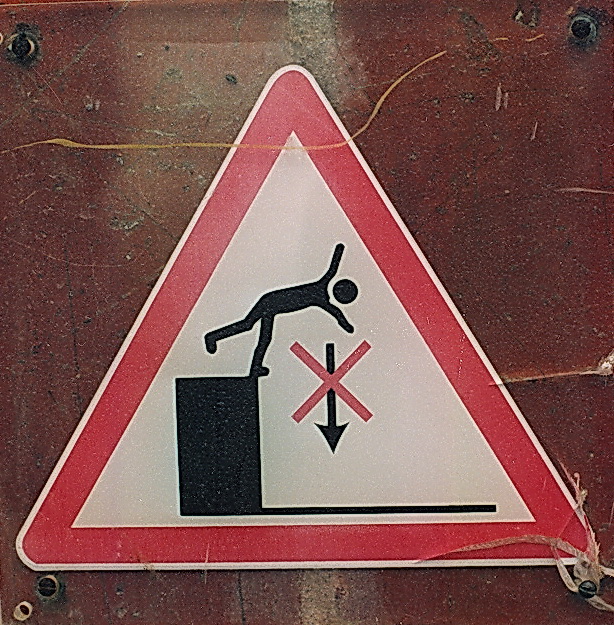 |
| By Gerbil (Own work) [CC BY-SA 3.0 (http://creativecommons.org/licenses/by-sa/3.0) or GFDL (http://www.gnu.org/copyleft/fdl.html)], via Wikimedia Commons |
We all have heroes, folks we look up to, admire and adore, folks we worship beyond measure.
We all have heroes who save our world, make our world.... contain all of our worlds.
We may know our heroes personally; they may be family or friends, co-workers or mentors.
They may be friends-in-our-head--movie stars, politicians, business entrepreneurs.
These folks we follow and imitate. These heroes we quote and cite as our reasons for.... everything.
And then.... comes the affair, the bankruptcy, the murder, the lurid past catching up, the surprising present revealed.
What do we do when our heroes fall from grace?
What do we do with the now hollow praise, the expansive admiration with no object?
We are used to folks falling from grace-- the scandal, the frantic, almost gleeful media reports, the viral explosions on FaceBook and Twitter. The talk shows. The witnesses coming out of the woodwork, from under rocks, from behind 30 years of silence, to collaborate, to denounce, to attest and announce their version of betrayal, each new report adding to our horror or causing us to nod in that cynical "I am not surprised" way.
For months, I defended Bill Cosby. These are only accusations. I said. He has not been arrested or charged. I argued. Why have they waited so long if this is true? I asked. What are they gaining? I wondered.
But now we have his own words corroborating everything or at least some accusations.
What do we do with this?
How do we now separate the man from the character that we all loved? That character that brought the first professional upper-middle class black family into our living rooms each week..
How do we separate that lovable Huxtable Dad who always knew just what to say and how to help from the man and husband who has caused so much hurt.
Do we still watch the old reruns? Are we still allowed to enjoy them or have we been betrayed so deeply that this is now an impossibility? Will they even remain on the air or be erased from air wave memory?
And then we have to ask who knew and didn't tell, swept it under the rug, or excused-- for whatever reason?
There are bigger issues.
What does all of this say about how we treat women and girls? Would we have believed these women individually? Did we believe them collectively? There was a lot of talk about conspiracies and economic gain? I participated in that talk with lots of other people.
I was wrong... along with many others.
And it is not just Bill Cosby.
We witness this falling from grace often.
Tiger Woods, Lance Armstrong, Bill Clinton, The Subway spokesperson... a host of politicians, sports figures....
We hoist people onto pedestals and when they come crashing down we are shocked and disappointed.
Despite the frequency of public falling , we never see it coming and we still take it personally.
What can we do?
As we witness the falling of others this may be a perfect time to assess our own precarious positions on pedestals that other may have erected for us... with or without our knowledge or consent.
Who will be disappointed if/when we fall?
We can only come to terms with fallings and failings if we recognize the universality of imperfection in both ourselves and others.
And we may cope more easily if we accept the realities and paradoxes of both/and rather than expecting our world to be either/or.
Where can we turn?
When in doubt I turn to poetry.
I write poetry to question, wonder, wrestle, think, figure out what I think... tell you what i think...
I read poetry in an effort to name my questions, my wonderings, my uncertainties...my un-name-able.
In her poem Imperfections, Elizabeth Carlson reminds us to love our own bumps and foibles (and I would add those of others, as well):
...I am learning to love
the small bumps on my face
the big bump of my nose,
my hairless scalp,
chipped nail polish,
toes that overlap.
Learning to love
the open-ended mystery
of not knowing why...
Robert Frost reminds us that Nothing Gold Can Stay.
Today's Deeper Writing Possibilities
Remember a time someone you know and/or loved fell from grace.
Write a list of questions you have about the surrounding events.
Your questions may be addressed to the person, to others involved, or even to yourself.
Write a poem based on your list of questions.
